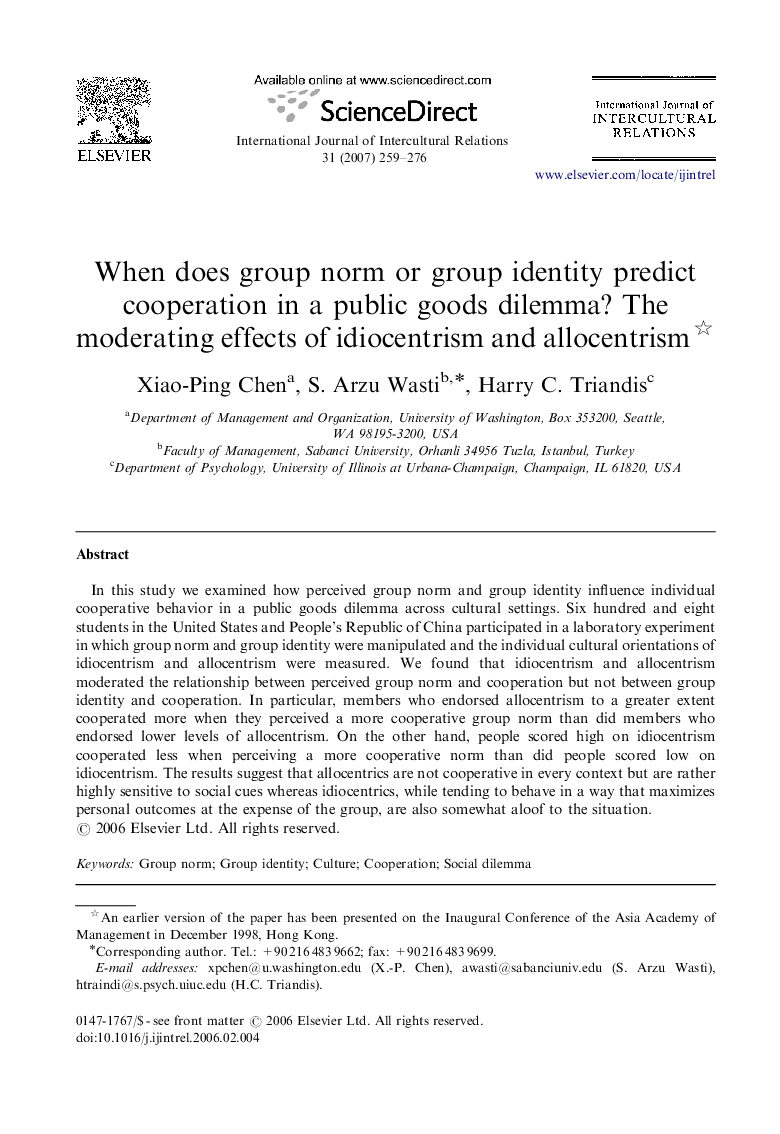| Article ID | Journal | Published Year | Pages | File Type |
|---|---|---|---|---|
| 947655 | International Journal of Intercultural Relations | 2007 | 18 Pages |
In this study we examined how perceived group norm and group identity influence individual cooperative behavior in a public goods dilemma across cultural settings. Six hundred and eight students in the United States and People's Republic of China participated in a laboratory experiment in which group norm and group identity were manipulated and the individual cultural orientations of idiocentrism and allocentrism were measured. We found that idiocentrism and allocentrism moderated the relationship between perceived group norm and cooperation but not between group identity and cooperation. In particular, members who endorsed allocentrism to a greater extent cooperated more when they perceived a more cooperative group norm than did members who endorsed lower levels of allocentrism. On the other hand, people scored high on idiocentrism cooperated less when perceiving a more cooperative norm than did people scored low on idiocentrism. The results suggest that allocentrics are not cooperative in every context but are rather highly sensitive to social cues whereas idiocentrics, while tending to behave in a way that maximizes personal outcomes at the expense of the group, are also somewhat aloof to the situation.
